Today’s lithium-ion batteries offer significant improvements over earlier technology, but Toyota is making a big bet on the next-gen solid-state batteries expected to dramatically improve range, lower cost, speed up charging times — and which it says it hopes to begin mass producing as early as 2027.
Toyota is partnering with the Japanese chemical giant Idemitsu Kosan to speed up development of solid-state batteries, a breakthrough technology expected to leapfrog today’s lithium-ion batteries when it goes into production as early as 2027.
The automaker recently offered insights into what it believes solid-state technology can achieve, showing concept vehicles delivering range of up to 621 miles per charge while cutting charging times down to as little as 10 minutes, more in line with what today’s motorists expect when refilling a gas tank. Solid-state is also expected to slash battery prices to the point where EVs could cost less than comparable vehicles using internal combustion engines.
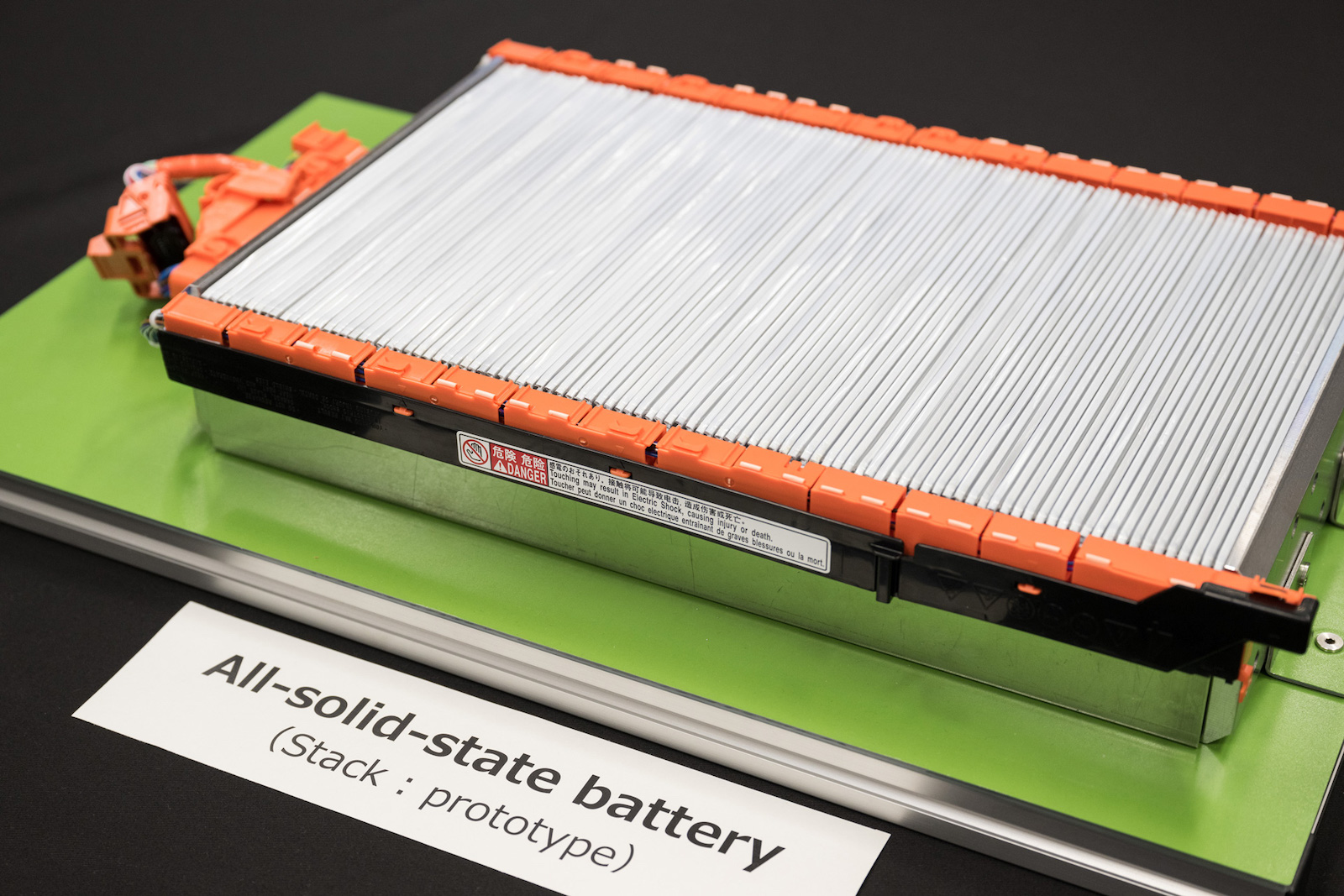
Toyota is looking to push up the launch of production and the rate of adoption, both essential to its goal of selling 3.5 million EVs a year worldwide by 2030.
“Through this collaboration, the two companies, which lead the world in the fields including material development relating to all-solid-state batteries, seek to ensure the successful commercialization of all-solid-state batteries in 2027-28,” Toyota and Idemitsu Kosan said in a joint statement.
Plenty of competition
Toyota is by no means the only automaker working to commercialize solid-state batteries. Others investing heavily in their development include BMW, Ford, Mercedes-Benz and Stellantis. And a number of startups have formed during the past decade specifically targeting the potentially world-changing technology.
Several automakers were planning to begin field testing solid-state batteries this year, including BMW and Ford. But the general consensus has been that they aren’t likely to see much use in retail vehicles until the end of the decade, if even by then.
Plenty of obstacles
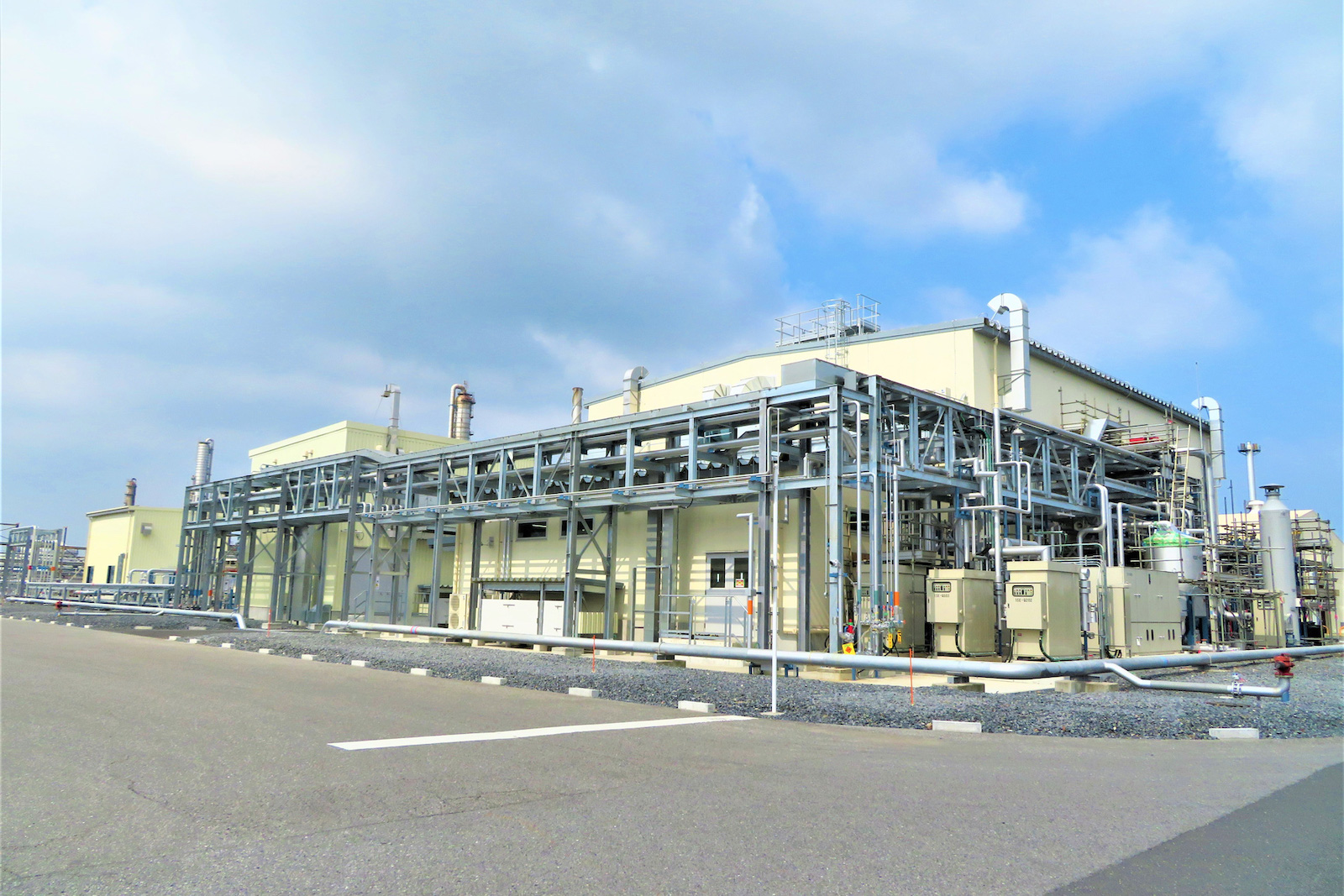
The two companies outlined a three-phase plan that starts with developing a commercially viable version of the chemistry used in solid-state batteries.
There are “very few known facts about manufacturability,” auto analyst Bill Kephart of P3 Group, said during a presentation at the 2023 Battery Show of North America last month. At most, he expected to see solid-state batteries account for 3% to 5% of global EV sales by 2030.
But Toyota is looking to push up both the launch of production and the rate of adoption, seeing the technology as essential to its goal of selling 3.5 million EVs a year worldwide by 2030.
The partnership with Idemitsu Kosan is specifically meant to leapfrog competitors in terms of bringing the technology into widespread use.
Setting a target for production
In a press conference announcing the joint venture, the two companies outlined a three-phase plan that starts with developing a commercially viable version of the chemistry used in solid-state batteries. The end goal is launching “full-scale mass production” sometime between 2027 and 2028.
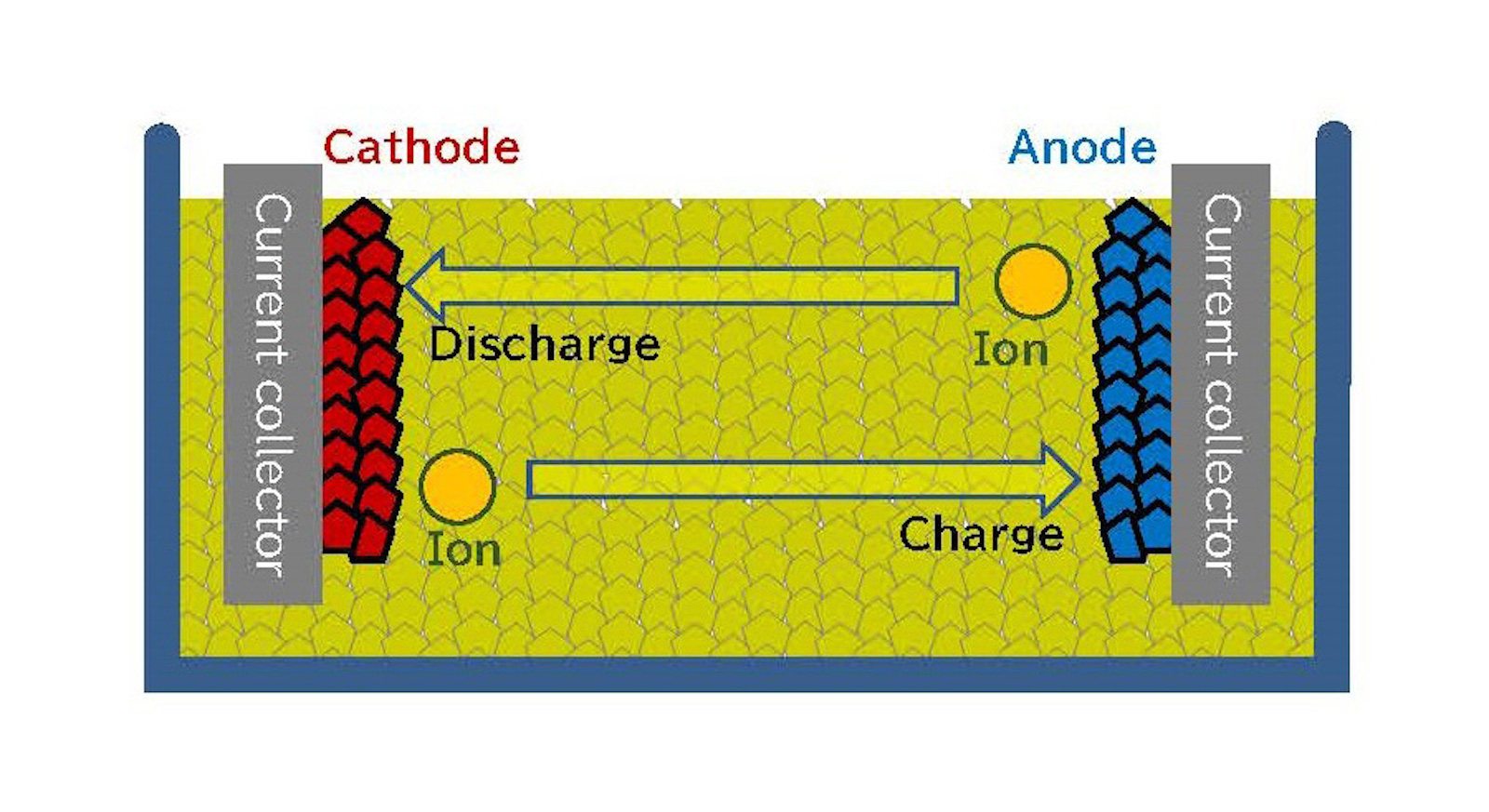
Proponents believe these next-gen cells will make it possible to directly compete with internal combustion technology.
“We will start to produce solid-state batteries for use in battery electric vehicles. We will then lay the foundation for mass production,” said Toyota CEO Koji Sato.
Sato was named chief executive earlier this year, replacing Akio Toyoda, grandson of the automaker’s founder. Toyoda was a skeptic about EV technology. Sato has increased the focus on all-electric propulsion, though he remains committed to having Toyota produce a mix of hybrids, plug-ins and fuel-cell vehicles, as well as EVs, well into the 2030s.
He is betting that solid-state technology will allow Toyota to catch up with rivals, such as Tesla, Volkswagen, Ford and General Motors, that have made more aggressive forays into the emerging battery-electric market.
Why solid-state is the EV equivalent of the Holy Grail
Proponents believe these next-gen cells will make it possible to directly compete with internal combustion technology. Prices could drop to as low as $50 per kilowatt-hour, according to research by the Boston Consulting Group and others, about half what today’s lithium-ion cells cost.
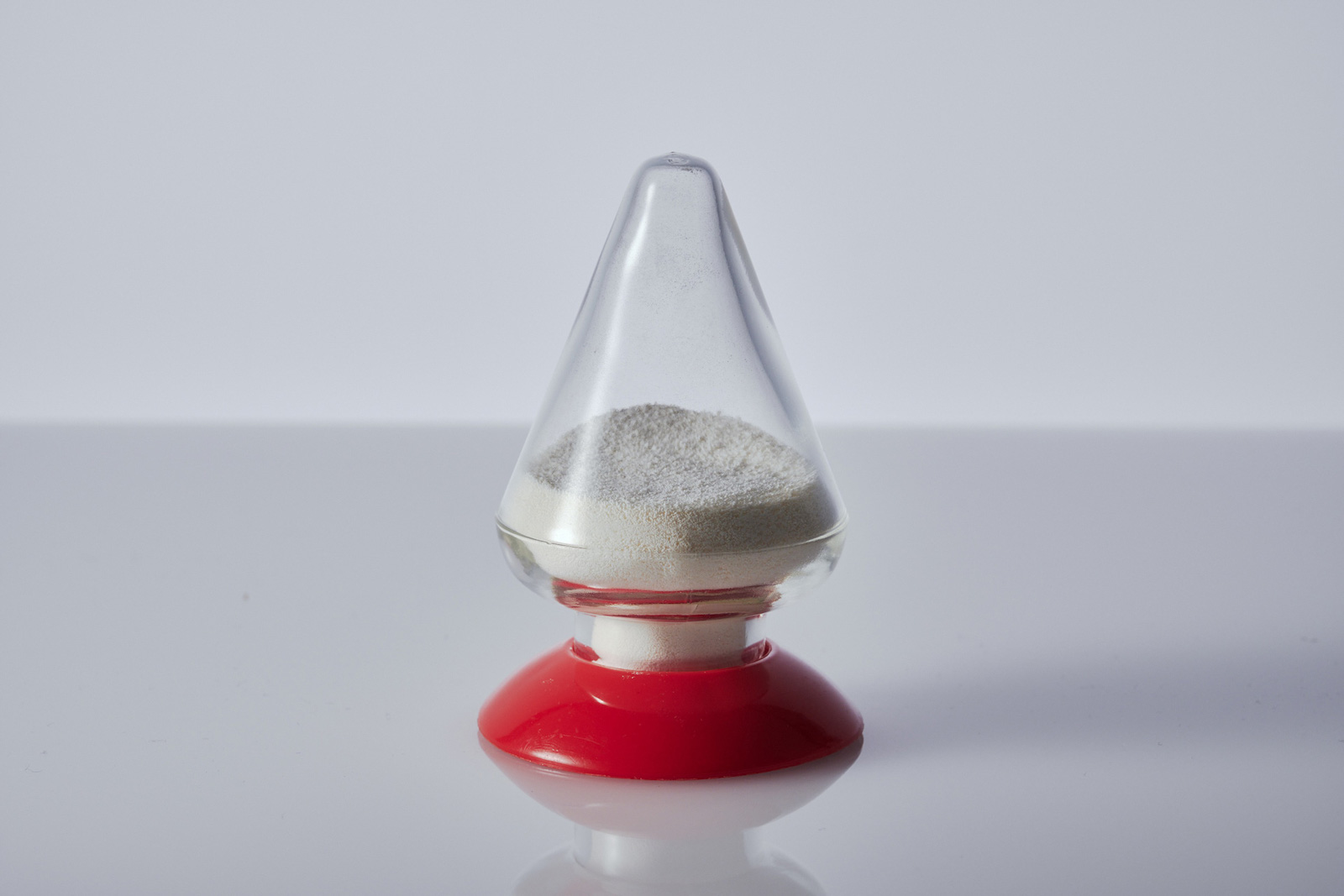
Among other advantages, by replacing today’s flammable liquid electrolyte with a ceramic alternative, solid-state batteries are expected to be fire-resistant.
Meanwhile, range would be extended substantially. Toyota last month showed off several EV concepts, one using solid-state batteries expected to deliver 621 miles per charge and to go from a 10% to 80% state-of-charge in just 10 minutes. The automaker said it is working on an even more advanced version of the new batteries capable of boosting range to 745 miles per charge.
Among other advantages, by replacing today’s flammable liquid electrolyte with a ceramic alternative, solid-state batteries are expected to be fire-resistant.
For the stuff of “dreams” to reality
With the launch of the joint venture, the technology is no longer “potential or dreams,” said Shunichi Kito, president and CEO of Idemitsu Kogan, “It means that the commercialization of solid-state batteries is a thing of the future that is now within reach.”
The partners already launched a task force to get the project underway quickly. They did not disclose how much each is investing, however.


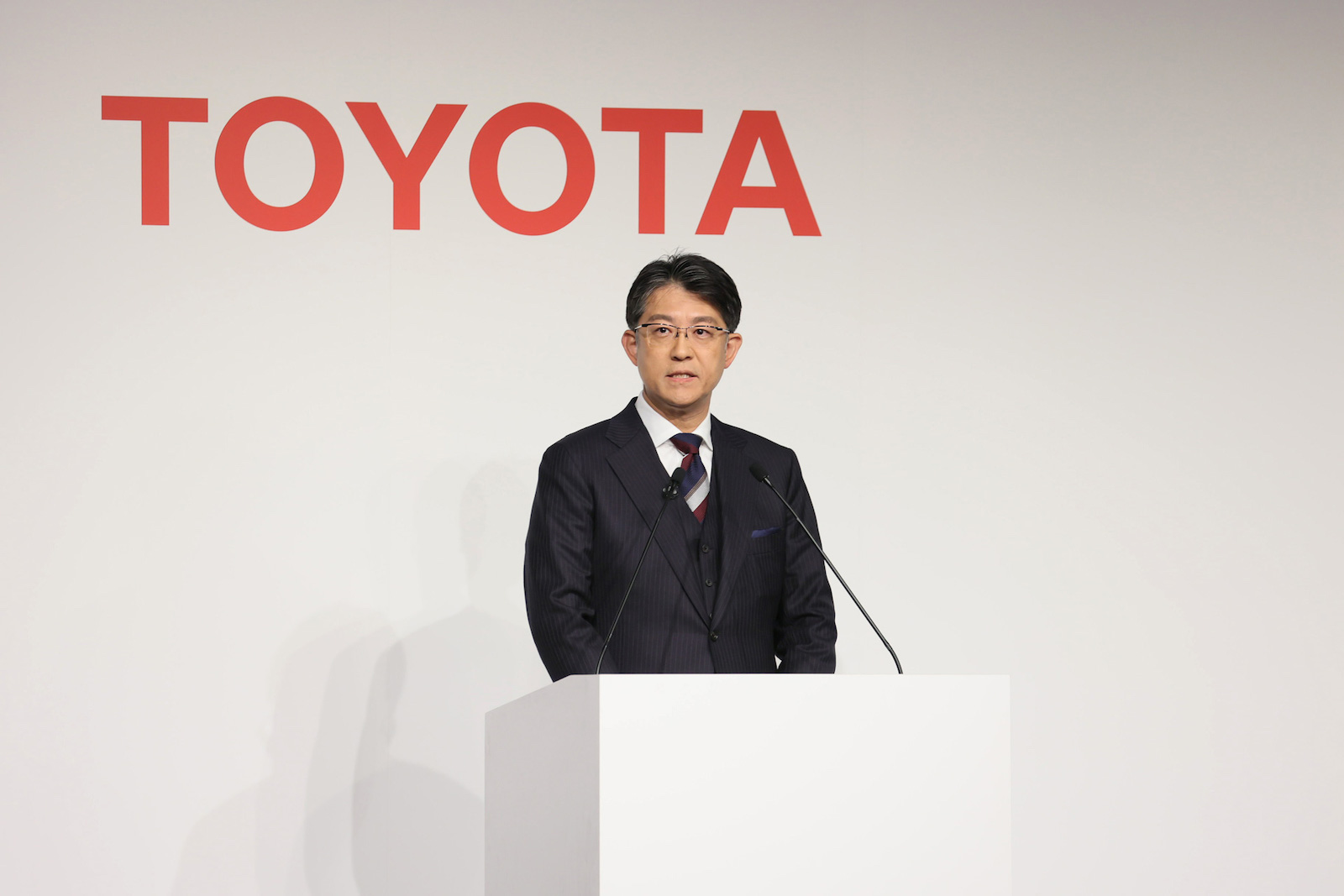
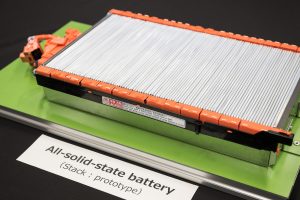
0 Comments